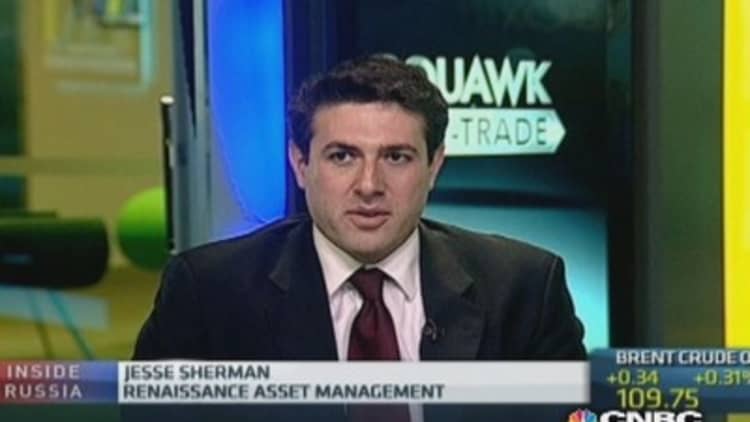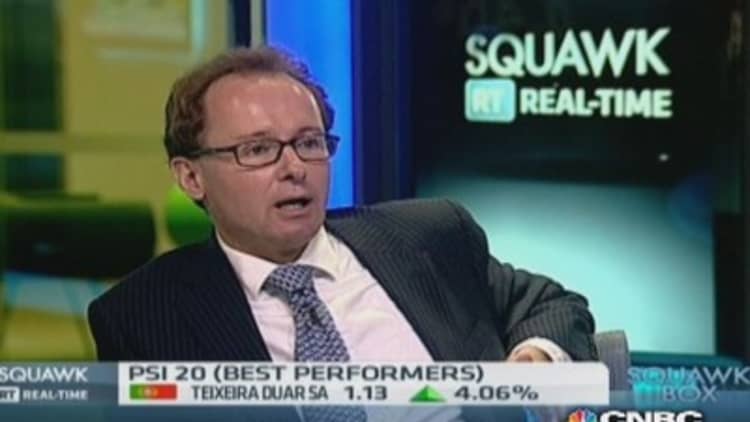
Mounting tensions on its borders with Ukraine, sanctions imposed by the U.S. and the European Union and a roller-coaster stock index: Russia may not be the first place you would think about for investment, but one fund manager has told CNBC that investors should look again at the country.
"While the short term can look messy and scary to investors, the typical extreme valuation discounts provide the opportunity to outperform over time," Jesse Sherman, a portfolio manager at Renaissance Asset Managers, said via email.
Russian blue-chip stocks on its Micex Index rose 10 percent in the month of May with investors seemingly overlooking the skirmishes between Ukrainian and pro-Russian rebels in the east. This followed a 13 percent drop for the bourse during February at the height of the tensions, when Russia annexed the Crimea region of Ukraine.
Read MoreWhat Russia-China relations mean for the dollar
At the beginning of May, Russia was trading at price to book value - an important metric used by traders to gauge equity prices - of 0.5, according to Sherman, with a 60 percent discount to the wider MSCI emerging market index, Sherman added.
This was similar to levels not seen since 2009 and clearly presenting a compelling investment opportunity for the long term, he said. Even now, after a 20 percent stock market rise since March, Russia remains at a 57 percent discount to the MSCI index, he added.
"While we have seen strong performance in many stocks in the investment universe January prices have yet to be reached," Sherman said.
"The most interesting aspect of the opportunity was the disparate nature of the Russian market sell-off which led to significant de-ratings of largely the domestic sectors like financials, transportation, consumer, and technology."
Read MoreIn Europe, Obama gets second chance to explain his Russia policy
The country represents a "compelling" long-term investment opportunity, according to the fund manager, even if short-term volatility could be too much for the more risk-averse. Sherman believes that the Russian market is no different from any other emerging market that has had issues in the past.
In April, the International Monetary Fund (IMF) downgraded Russia's growth forecast for the year from 1.3 percent to 0.2 percent, adding that Russia was currently "experiencing recession."

The organization also estimated that it would witness outflows of $100 billion in 2014 due to the international sanctions imposed on Moscow by the U.S. and the EU. On Monday, fresh data released confirmed that Russia's manufacturing sector had contracted for the seventh straight month in a row, although the pace of the contraction was at its slowest since November.
Read MoreRussia faces uncertain future as economic elite gathers
With equity prices in developed markets looking increasingly hefty many analysts are growing concerned about valuations. Some are looking towards emerging markets in a search of yield but Francesco Garzarelli, the co-head of global macro and markets research at Goldman Sachs, says the bank is staying "prudent" towards "high-octane, riskier" investments.
"(EMs) have had a lot of tailwinds in the form of tepid growth...low volatility and central bank accommodation," he told CNBC Monday.
"As we progress in the second half of the year we may see a bit more turbulence kicking in and I think the opportunities are more in the developed markets right now."


